The BBC has announced a three-fold increase in the number of organisations that have signed up to its 50:50 Project to improve gender diversity beyond the broadcast company, and has now set its sights on extending the programme worldwide. Organisations such as Unilever, RTÉ, TVNZ, the Financial Times, ABC News (Australia) and Lansons are already implementing the BBC’s methodology, to improve gender representation in their companies, according to the BBC.
Last May, the BBC set a challenge to prove that reaching 50% of women contributors was sustainable. Over 600 teams across all BBC content divisions – including news, entertainment, sport and science – have signed up to the project to date. Despite the significant challenges of the coronavirus pandemic, the latest results published in its Impact Report 2020, show there has been a shift in the representation of women in BBC content.
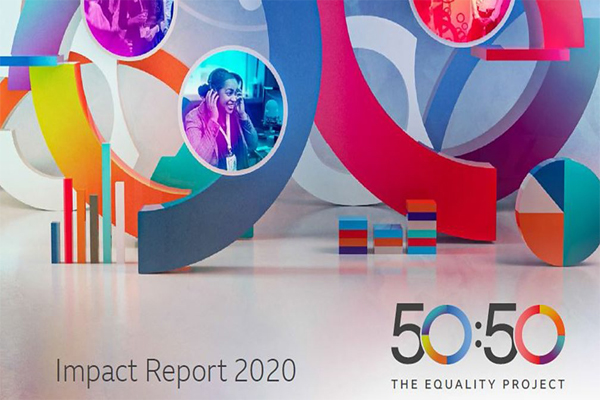
GENDER IMPACT
According to the report, “66% of datasets for the challenge month of March featured 50% women contributors. Only 34% of those datasets were reaching 50% women contributors when they first returned results.”
Some of the high profile programmes to have reached the 50% women mark include Radio 4’s The World This Weekend, the News at Six, BBC Breakfast, The Andrew Marr Show, The One Show, Radio 5 Live Breakfast and Songs of Praise. The BBC’s coverage of Glastonbury Festival in June and Sports Personality of the Year in December also reached 50% women contributors.
The results also reveal that the longer a team spends monitoring their contributors, the more likely they are to improve the proportion of women. Of the 46 programmes that have been involved for more than two years, 78% reached 50% women contributors in March 2020. For teams involved for 18 months, 73% reached the required mark, and 68% for teams involved for 12 months.
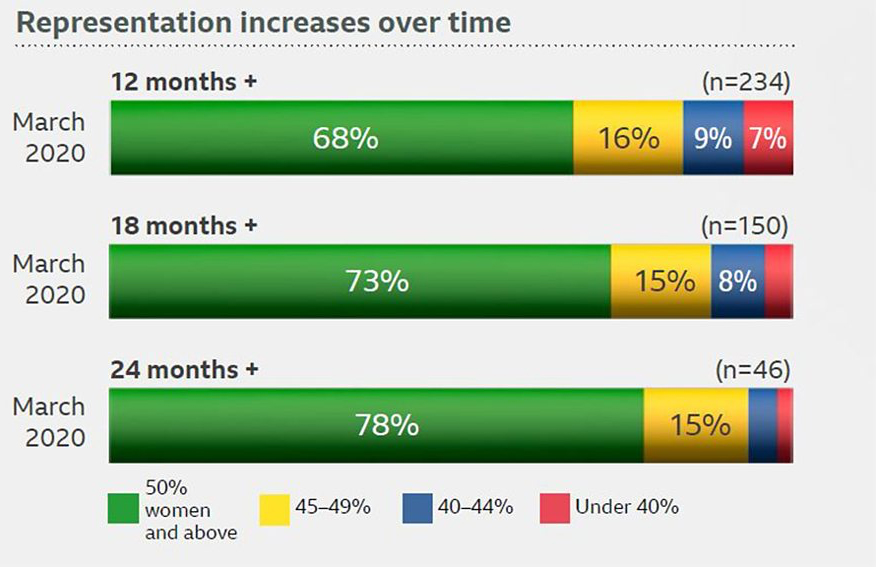
KEY GROWTH AREAS
The BBC highlights five key areas of growth for its grassroots initiative that aims for 50:50 representation of women and men in the media. They include:
- Five areas of growth highlighted to increase project’s global impact
- More than 60 organisations in 20 countries have adopted 50:50 methodology already
- Two-thirds of BBC data submitted featured 50% women contributors for the challenge month of March. Only 34% were doing this when they started the project
- Over 600 teams across the BBC are now signed up to the 50:50 Project
- Data suggests that reaching equal representation improves the longer teams implement 50:50
More than 60 organisations in 20 countries are now taking part in the 50:50 Project, with partners across media, PR, academia, business and the legal sector committed to creating media content that represents men and women equally.
ENCOURAGING TREND
“What is encouraging about this long-term trend is that it suggests cultural change is taking hold at the BBC,” stated Nina Goswami, the BBC’s Creative Diversity Lead for 50:50 and News, and one of the report authors. “Our teams are creating sustainable change through 50:50 by monitoring their output, sharing data to inform editorial decisions, and building contacts of expert women so we can feature more diverse voices. Over time, the change in mind set of teams means that striving for balance becomes second-nature.”
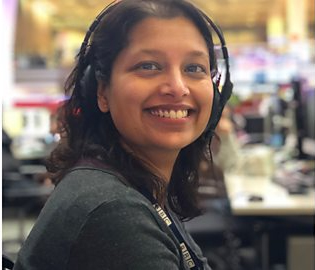
Audiences have noticed a difference, with nearly 40% of those taking part in a nationally representative survey saying they had noticed an increase in the number of women in BBC online content, including BBC websites, iPlayer and BBC Sounds. Among 16 to 34 year-olds, 40% said they derived greater enjoyment from BBC content as a result of seeing and hearing from more women. Meanwhile, 32% of women aged 25 to 34 reported that they now consume more BBC online content because of greater female representation.
REFLECTING DIVERSE AUDIENCES
The 50:50 Project contributes towards the BBC’s responsibility to ensure its content truly reflects our audiences. The Corporation says it aims to reach 50% women on-screen, on-air and in lead roles across all genres from drama to sport to news. “These results demonstrate the real impact the 50:50 Project is having – but that impact goes beyond the BBC, with other organisations at home and abroad adopting it,” stated BBC Director-General, Tony Hall.
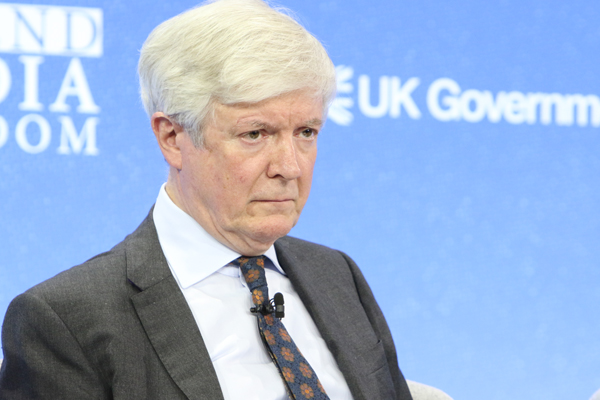
“Its success is driven by the creativity, passion and determination of thousands of people around the world, and together with our ever growing number of partners, we can help ensure the media we all consume represents the world we live in,” added Hall.
LEVELLING THE PLAYING FIELD
Adding to his comments, June Sarpong, BBC Director of Creative Diversity, said: “When it comes to gender equality, or diversity in general, we have to find effective ways of levelling the playing field. To do this we need to see and hear more role models in the media and emphasise the importance of representation, which is precisely the gap the 50:50 Project fills. We’re excited to build on the success of the project and with our external partners, together, we can truly maximise the impact of 50:50.”
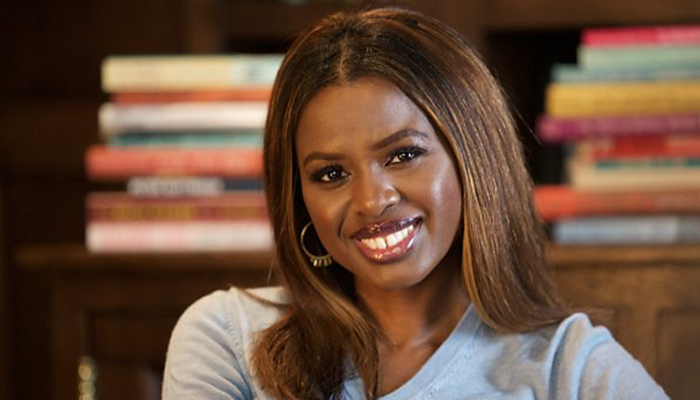
FUTURE GOALS
To continue this work, the BBC is highlighting where 50:50’s work will continue:
1. 50:50 in public broadcasters globally
We will continue with public service broadcasters around the world to deliver diverse content for the countries and audiences we serve.
2. 50:50 in journalism schools around the world
We are creating a global 50:50 academic network to inspire the next generation of journalists.
3. 50:50 in the world’s leading companies
The world’s most high-profile businesses are significant content creators and media contributors. We will continue to work with them to inspire a shift in how the business sector is reflected in the media.
4. Use 50:50’s success to inspire better representation of our diverse societies
From ethnicity, disability to socio-economic diversity, we will work with our global partners to use 50:50 to improve the portrayal of under-represented groups across the media.
5. The BBC’s commitment to 50:50 continues
We will continue to support and promote 50:50 and commit to holding a 50:50 Month every March and to detail our progress annually.
The BBC’s 50:50 team is looking to work with like-minded organisations that are striving for better representation, which will allow media to better reflect society.
Click here to check out Nina Goswami’s blog for more information about the BBC’s 50:50 Project results.







































